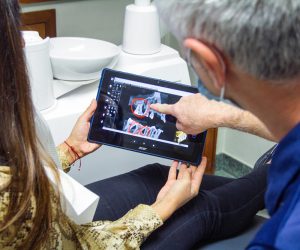
How to Find Yourself Again After Trauma
Dr. Caroline Leaf – In this podcast (episode #471) and blog, I talk to holistic psychologist and best-selling author Nicole LePera about finding your authentic self after trauma, identifying and unlearning harmful habits, and so much more!
In her first book, How to Do the Work, Dr. Nicole offered readers a revolutionary, holistic framework for self-healing. Now, in How to Meet Your Self, she shares an interactive workbook designed to help every reader uncover their Authentic Self.
By objectively and compassionately observing the physical, mental, and emotional patterns that fill our days and create our current selves, we can more clearly see what we do not wish to carry into the future.
Why is this important?
As Nicole points out, we all fall into conditioned habits and patterns—products of our past—that lead to cycles of pain, “stuckness,” and self-destruction. But we also have the innate ability to awaken to and change the behaviors and habits that no longer serve us, allowing us to step into the highest versions of ourselves, which is why Nicole wrote How to Meet Your Self: to help the reader radically transform their inner and outer world.
We all struggle and we all have unique healing journeys. This is a universal aspect of the human experience. No matter who we are or where we come from, we cannot escape the fact that our past experiences color our present realities.
For many of us, these patterns go unnoticed; we live our lives unaware of how these habits shape our thinking and actions. How to Meet Your Self, Nicole helps us become more aware and conscious of how the past is affecting our present and gives us practical tips and tools to change and heal the mind, brain and body.
Awareness is the first step.
When we see these aspects of our lives as habits and not intrinsic parts of ourselves, we can work on changing these patterns in our lives and reconnecting with our authentic self—that deep inner knowing of ourselves. We can’t heal what we are not aware of.
But this change doesn’t happen overnight. It takes time and effort to do the work. As mentioned above, awareness is just the first step, which then allows us to start our healing journey and discover our true, authentic selves.
This change is often hard and difficult, and other things will come to the surface, which is why it takes consistent daily effort to shift our thinking and habits, especially if we have been living a certain way for decades. Learning habits and patterns often begins in childhood.
Indeed, childhood is a very vulnerable period in our lives; we are growing, developing and learning how to see ourselves and the world around us.
Unfortunately, the adults in the room are often dealing with their own trauma and issues, which can affect how they relate to us as children.
This, in turn, can affect how we function as adults through the habits and patterns we learn—soon, a negative, generational cycle can be set up.
Thankfully, it is never too late to heal.
The brain is neuroplastic, which means that it can change.
This is why it is so important that we learn how to connect with and trust ourselves—to reach that authentic self. We need to put on our own oxygen mask first by working through our past and what we need to heal before it starts impacting our wellbeing and our relationships.
We need to learn how to embrace, process and reconceptualize what we go through, not push it down, or we may start to resent putting other people’s needs before our own.
We need to learn how to process our experiences and feelings, not feel ashamed that we have emotions like frustration, anger and so on. When we do this, we are better able to connect with ourselves and the people in our lives on a deeper level, instead of using boundaries to put up walls around ourselves and keep people out.
It is not selfish to work on ourselves and take the time to heal and connect with our authentic self. Rather, doing so promotes interdependence: the ability to truly thrive and connect with others in meaningful ways.
This kind of autonomy is not the freedom to do whatever we want without consequences; it is the recognition that we are part of a larger whole, and that we as individuals do not have to do it all by ourselves.
Our relationship with ourselves is the foundation of any relationship we will have.
For more on finding your authentic self, listen to my podcast with Nicole (episode #471) and check out her amazing work.
Podcast Highlights
1:54 Nicole’s amazing work
4:19 Social media & therapy
6:28 Nicole’s new book How to Meet Your Self
8:00 How the past affects our present
10:14 Why it takes time to change past patterns & habits
14:00 The power of the conscious mind
19:33 Getting out of “auto-pilot mode”
26:10 Learning habits starts in childhood
35:17 Healing religious trauma
36:28 How healing ourselves helps us connect with others
41:50 Why we need to allow ourselves to acknowledge our emotions
45:00 What our need for boundaries tells us about ourselves
50:00 Autonomy versus selfishness
This podcast and blog are for educational purposes only and are not intended as medical advice. We always encourage each person to make the decision that seems best for their situation with the guidance of a medical professional.
To read the original article click here.






